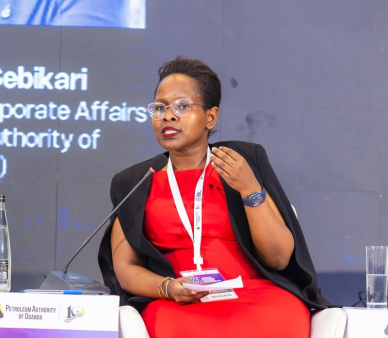You worked for PwC for 27 years, 17 of which you worked as a partner, the highest point in the business, but chose to take early retirement. Why early retirement?
It is true as the Managing Partner of PwC Uganda, as well as a Board Member of PwC Africa, I was a very senior member of our PwC firm in Africa, and probably at the highest point of my career within the firm. But I have always known that I will have to leave the firm at some point. I started planning for this move in 2017 when I turned 50.
I called it early retirement because I left the firm six years before our retirement age of 60. But the word I prefer using is redeployment. I have redeployed myself from PwC so that I can spend more time pursuing other private businesses, social causes, and interests. I decided to make the move now when I still have energy, relevance in society and social capital. I’m not retiring. I do not think I will ever retire, because they are so many things I want to do before I die.
This early retirement or redeployment as you prefer to call it is quite rare in our country both in the corporate world, professional firms and in politics. Don’t you agree?
Yes, I agree it is rare. Many of my friends in the corporate world were taken by surprise when I told them. I have always been a bit unconventional in the way I do things. For example, I did not study Accounting or Finance when I was at university. I studied Agriculture and graduated from Makerere University with a BSc in Agriculture in 1990. You will not find many people in my profession, who are of my age and of my profile whose background is like mine.
With a BSc in Agriculture as your first degree, how did you end up in accounting, and become the leading Tax Expert we know you to be?
Immediately after completing my final exams and got confirmation that I had passed and been awarded a B.Sc. Agric (Hons). I then emigrated to the UK to pursue a professional qualification in accounting. I did not wait for graduation. I started by training and qualifying as an Accounting Technician (AAT) in 1991, and later as a Chartered Certified Accountant (ACCA) in 1994. After joining Coopers and Lybrand (now PwC) in the UK in 1996, I decided to specialise in Taxation and qualified as a UK Chartered Tax Adviser (CTA) in 1999. This is a very exclusive and prestigious qualification for Tax Professionals in the UK. I’m the first Ugandan to qualify to be awarded this qualification.
I joined PwC Uganda in 2000 as a manager, on secondment from the UK. I was later seconded to PwC Kenya in 2002 as a Senior Manager and then admitted as a Partner in Kenya in 2005. I returned to Uganda, again in 2007; took on the role of Managing Partner for PwC Uganda in 2009. In 2014 I was elected by my fellow Partners in Africa to serve as a member of the PwC Africa Governance Board. So in total, I have worked with PwC for 27 years – 4 years in the UK, 5 years in Kenya and 18 years in Uganda. I have served the firm as a Partner for 17 years, Managing Partner for PwC Uganda for 12 years, and a member of the PwC Africa Governance Board for 8 years.
Working for one employer for 27 years- you have to be a special kind of person. Your employer too, has to be a special kind of employer. Incidentally, your successor too, has been at PwC for about 20 years. Looking back both at the individual level and the organisational level- what made you stay with the firm for that long and what does it say about PwC?
Working with and for a global professional services firm such as PwC is very different from working with any other local or international company. From the day you join, you get to know about the career progression structure within the firm, the time it will take you to progress, as well as the qualifications, skills and competencies you will need to get there. You can join PwC as a young 22-year-old graduate trainee or intern and decide that you want to make a Partner in not more than 15 years and achieve that target.
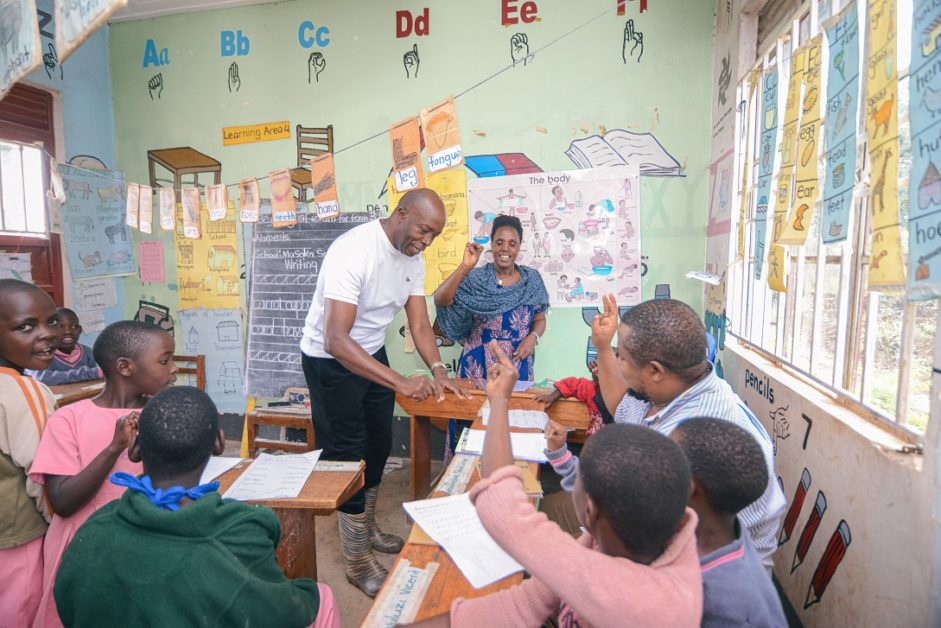
As soon as I moved back to Uganda in 2000, I set myself a goal of making a Partner in not more than five years, and I did it. When you become a Partner, you cease to be an employee and become one of the owners of the business. To ensure that there is continuity, the firm admits new Partners every year, and also retires Partners that have reached the retirement age of 60, every year. PwC has been in existence for close to 170 years. During this period, many Partners like me, have come and gone, but the firm continues.
I stayed with PwC for this long because I enjoyed what I was doing. I have worked with as well as advised all the major businesses and leading corporations in Uganda, in all the industry sectors of our economy. The work I was doing was so diverse, that at no time did I feel like I have been doing the same job for 27 years. I advised new investors coming into the country, advised existing investors on growing their businesses for example through mergers and acquisitions, advised foreign investors exiting the country, helped companies and organizations in the recruitment of senior executives and board members, and advised the government on issues of business and tax policy, assisted taxpayers in resolving their disputes with the URA, and so on. There is no single day of mine that was ever the same as the previous day. My work was so diverse, and really challenging while at the same time very interesting.
As the top leader in the firm in PwC Uganda as well as a member of the firm’s leadership and governance team at the continental level, what would you attribute the success you have achieved in your career with PwC to?
Looking back at my 27 years with the firm, I can say very confidently that I have had a very successful career―success in form of personal growth, financial growth, professional development, as well as in building a personal brand. Most importantly I have been very successful in building, developing, and nurturing meaningful and in some cases very personal and deep relationships with very many colleagues, I have worked with as well as with our clients some of whom I now consider to be my best friends.
As a leader in the firm, I considered my main role as one of creating an environment where people can develop, grow, and prosper. This is especially important when you are a leader of a professional services firm with very highly qualified, intelligent and very experienced professionals. I always endeavoured to connect with my team, facilitating open communication, encouraging as well as supporting them to grow and develop. I also connected with my team at a personal level, and this got me to know them better.
It is through this very close and personal relationship I had with my team that I got to realise that our people did not want to be managed. They are very intelligent people who are capable of managing themselves. I realized that what they wanted from me and other leaders in the firm is to provide them with guidance, mentoring, support, empowerment; trusting, valuing, challenging and training them, and of course, pay them very well for the excellent work they do.
This realisation helped me to develop a leadership style that was responsive to what our people wanted from me as their leader. I was always available, approachable, supportive of them both at a personal and professional level, transparent with them, challenged them to be the best they can be, and also socialised with them and their families to get to know each other better and build meaningful relationships of trust. It is this leadership style that I attribute to the success I have had with PwC.
You have been a very visible person in the media, on business forums, discussing issues of tax policy, business regulation and other matters relating to government policy. Will you continue to share your knowledge during this new phase of your redeployment?
Of course, I will. But I also hope other professionals will also do the same. Many professionals out there, have so many qualifications and know so much stuff. They think knowledge is power, but they keep this knowledge to themselves. I have always believed that knowledge is only potential power. It is applied knowledge that is power. This is the reason why I was always writing in the newspapers, speaking at seminars, and debating topical issues on TV. The objective was for me to share as well as apply the knowledge I have. I had to shift from just knowing things and transformed myself into a visible expert who was always sharing knowledge with the objective of – informing, influencing, and inspiring others.
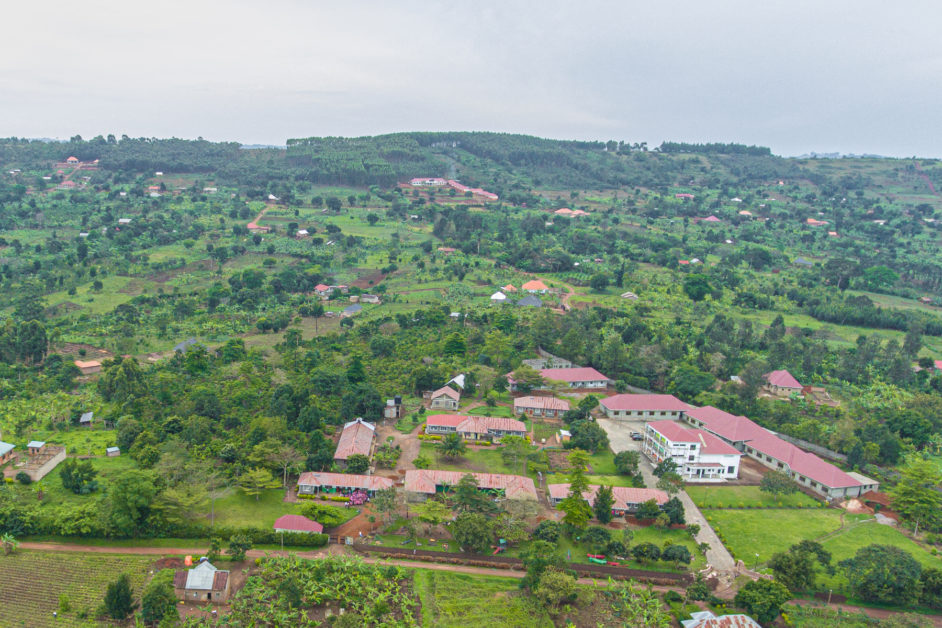
There are many professionals who are imprisoned and trapped by their so-called “professional background and qualifications”, and they never look beyond “their field”. I call this the competency trap. I did not want to be like them. To avoid this, I have always looked more outwards, seeking new experiences without fear of failure. I do not fear trying new things. I do not fear failure.
We do understand that you have chosen to go into social entrepreneurship. Do tell us more about what you are into.
Many people can go their entire lives working, and busy being busy and having nothing to show for all their busyness apart from the “things” they have acquired and possess. I believe that all of us as human beings aspire for a higher purpose than just acquiring and amassing things. I was very lucky to discover my purpose at a very early age in my working life. I know the things I like and enjoy doing – the things that I find very fulfilling to me as a person. These are the things I will do whether you pay me or not.
I like helping other people in any way and whatever way I can. I like sharing knowledge, and that is one of the reasons I used to write in the newspapers every week for five years both in Kenya and Uganda. I was not being paid for that. I like connecting people, matchmaking and creating networks. For example, I have led the recruitment and deployment of over 30 very senior executives and board members for very big corporations and organisations in Uganda in the last 5 years.
Most importantly I derive a lot of joy and fulfilment in supporting causes that are aimed at enabling and empowering others through training, mentoring, and coaching, with the ultimate objective of helping people to be the best they can be. One such cause that is very dear to me is the provision of education and vocational skills training to the deaf children of Uganda. This is what I have been doing for the last 17 years in my home city of Masaka at Masaka School for the Deaf (www.masakasne.com).
In addition to this school for the deaf, I have also started four new projects in Masaka, and these are going to keep me very busy. I have expanded our coffee farming project from 7 acres to 20 acres and doing it the proper way as a serious agribusiness and commercial farming project. I’m also into pond fish farming, and currently have eight fishponds with a capacity of 40,000 fish. In addition, I’m also in the process of setting up a very modern purpose-built vocational skills training institute in Masaka with a capacity of 300 students. This institution is going to be a centre of excellence in the country, for certain vocational and technical skills. All these educational and farming projects are part of an eco-tourism and edutainment ecosystem that I’m in the process of setting up at our 50-acre farm in Masaka.
I have also joined some friends to pursue business and investment opportunities, in various key sectors of our economy, something I could not do before as a Partner in PwC, due to our firm’s very strict conflict of interest and auditor independence rules. So, as you can see, I’m not retired. In fact, I’m busier than when I was at PwC. Most importantly, I’m enjoying it and finding it very fulfilling while at the same time making a huge impact in the lives of so many other people.
One would have expected that you would perhaps go into consultancy- given this has been your lifelong calling. Why veer off nearly 90 degrees?
I have been in consultancy for 30 years, 27 of which have been at PwC, the biggest professional services firm in the world. Why would I leave such a big global stage of consulting for top clients to be a small briefcase consultant in Ntinda or Kiwatule? No, that is not how I do things. Secondly, I would not describe consultancy as my lifelong calling. I have done it for 30 years. I look at that as the first half of my working life.

I now plan to do something very different for the second half of my working life. This second half is not going to be about what I do (work, title, rank, status, position) but it is going to be about who I am, and why I am here (purpose). It is going to be a time where I will have to shift my focus from doing things that have been only benefiting me, which things have got me to where I am, but will most likely end or die when I’m gone; and instead focus on doing things for other people, which things I hope will outlive me.
Looking back at your 27 years of work- what would you say are some of the key lessons you have learned that you may want to share with other leaders and possibly those in the leadership pipeline?
It has been a journey. I started off like all young and very ambitious professionals of today, with a lot of hunger and urgency for rapid career progression and success. Back then my measure of success was on how quickly I was growing myself into the senior positions of leadership within our firm. However, after I became the leader, I realized that my success was all about growing others I lead to become even better leaders than I was.
I learnt through various personal experiences and challenges that I had to first learn to lead myself before I could lead others. I also realized that to be a great leader I had to be a lifelong student. I accepted that I did not know it all and accepting this was not a sign of being weak.
I got to realize that in life, you can almost buy anything, but the one thing you cannot buy is reputation. Reputation has to be built from a track record of consistent performance at the highest level possible. That is what I always aimed to do.
I knew that whatever I had learnt and acquired at PwC was not mine to keep – I was just a steward – so I adopted a stewardship mindset. After climbing the ladder – you need to step aside and hold the ladder for others to climb – that is how enterprises, firms, communities, societies, and nations develop.
As a leader, you need to remember that It’s not about how much power you have, but how you use that power. That is what matters. Always use whatever power you have well – to serve others.
I have always looked at leadership as a responsibility – not a title, not a position and not a rank. It is a choice. I, therefore, chose to lead, as opposed to just being in a position of leadership.
I have a very humble background and I knew that the large chair I was sitting in at PwC “did not make me a King”. It is for that reason that I always endeavoured to lead with humility. Being humble is not a sign of a lack of confidence or competence, but it is being free from pride and arrogance. Humility is not thinking less of yourself, but it is thinking of yourself less. Lead with humility.
I knew that my time would come, and I will leave the firm, and when I’m gone, after some time probably no one will remember me. That is ok. All I wanted was for PwC and its people to continue to be successful after I’m gone. That is what matters most. This was never about me. It was always about the firm, its people and our clients. Leaders should know when to go, and when that time comes, they should go. Move on!
It is important as a leader at whatever level you may be, to always remember that your time will also come, and you will have to leave. And when you are gone, life will continue, and people will move on. The people might even forget what you said and what you did. But they will never forget how you made them feel. So always treat people well. Always!
Those are some of the lessons as well as advice I would like to share with other leaders.
During your time, at PwC, you were a key player, especially in shaping and or influencing various areas in the regulatory environment, especially taxation. If you had all the powers to shift certain things about the regulatory and policy environment- what would you say are the 5 key things, you would re-fix to put Ugandans on the path to accelerated growth?
Having all the powers is not a good thing. As you know absolute power corrupts absolutely. Also, many of the problems we have in our country are not a result of our leaders not having enough power. It is mainly due to lack of, or poor execution. We have very good plans and policies, but we are so poor at execution. Great execution will deliver results even under a poor plan. That said, here are some of the key things that I think need to be addressed.
- We need to do better, a lot better at execution and implementation of our country’s plans at all levels of leadership.
- We have a problem in our country where our leaders at different levels feel entitled to so many privileges by virtue of the positions of leadership they hold but are not willing to be held accountable. This problem of increasing entitlement behaviour by the leaders and the decline in accountability has led to a culture of lack of trust in our country between the leaders and the people they lead. This needs to change if we are to see inclusive economic growth, economic development and transformation in our country.
- Leaders at every level of leadership in our country need to always remember that they are working with people – not numbers, not statistics, not cases and not robots. People. As a result, they need to be human, as well as humane in their leadership. It is only when you are human as a leader that you can recognize the humanity in others.
- One of the issues of regulation in the country, I believe that one of the key building blocks for the success of an economy is the design of a regulatory regime that encourages investments both foreign and domestic, and levels the playing field for all businesses. Ensuring effective compliance with rules and regulations is an important factor in creating a well-functioning society and trust in government. Achieving good regulatory outcomes is almost always a cooperative effort between the government, the regulators, the regulated, and the broader society. It is therefore important that any governance and regulatory arrangements proposed by the regulators must always undergo very careful consideration by all the stakeholders to ensure they promote business and investment rather than hinder it, while at the same time they ensure the efficient achievement of government policy objectives and foster public confidence.
What advice do you have for other leaders that are about to retire soon, but currently very anxious and uncertain of what the future will be for them when they leave their very comfortable corporate or political leadership positions they are currently in?
There is so much change going on in the world and around us, which has made the old-school notion of a single career outdated. Therefore, we must prepare for career transitions and being many things over a lifetime. If you are 50 years now, chances are that you will live for at least another 45 years, if you are in good health and continue to look after yourself well. If you are currently working for an organisation whose retirement age is 60 years, you need to start planning now, on what you will be doing between the age of 60 and say 80 years.
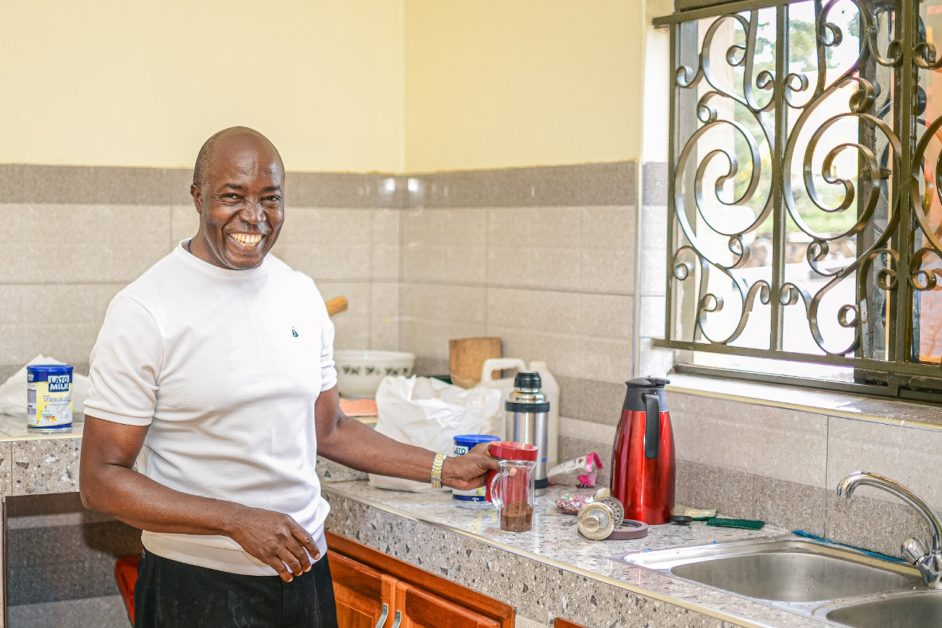
Because of the longevity, we are going to enjoy as a result of improved medical care and better lifestyles, it means that our working life is going to be longer. Therefore, we should prepare for a series of career transitions during our, this long working life. One must start planning for their second career early and have a plan of what they will be doing from age 60 onwards. That needs to be done now when you are still working.
The idea is to have something active, engaging and fulfilling to “retire” to, when that time of moving on comes, as opposed to retiring from your current job. Preparing for this transition requires one to distinguish who they are from what one does. This is something only You can do for yourself because you know yourself better.
The society we live in over glorifies titles and status. As a result of this, many corporate and political leaders have lost their identity and have become “their job”. These people will struggle to transition out of their current leadership roles, when the time to move on comes, because what they do, the job, has become their identity.
There comes a point in one’s life as a leader when you have to stop chasing success for the sake of success. This is because this kind of success only makes you feel good, but it will never give you fulfilment. And because you are not fulfilled, you continue yearning for more and more things. That is why we are seeing so much selfishness and corruption by leaders in our society. As a leader, you need to stand for something, and you should not confuse your values with your valuables. You need to distinguish who you are from what you do and distinguish your self-worth from your net worth. I believe the greatest test for us leaders, is not the path we travel to achieve success, but it is what we do with success once we find it. What have you done with your success?
We were so used to coming over to PwC to see you and speak to you anytime we wanted. Where does one find you when they want to see you nowadays?
Currently, I’m spending a lot of my time in Masaka, running, supervising, and overseeing the various projects we have there, as well as starting new projects some of which I have already alluded to above. I’m also enjoying my new role as a stay-home house-husband. In addition, I’m doing a lot of coaching and mentoring for a number of senior business leaders, many of them very good friends of mine, and for young professionals, sharing my personal experiences as well as providing them with guidance on various issues wherever I can. The strange thing is that I seem to be even busier than when I was with PwC.
It is amazing how one’s life can suddenly take on significance simply because one is now focusing more on the needs of others.
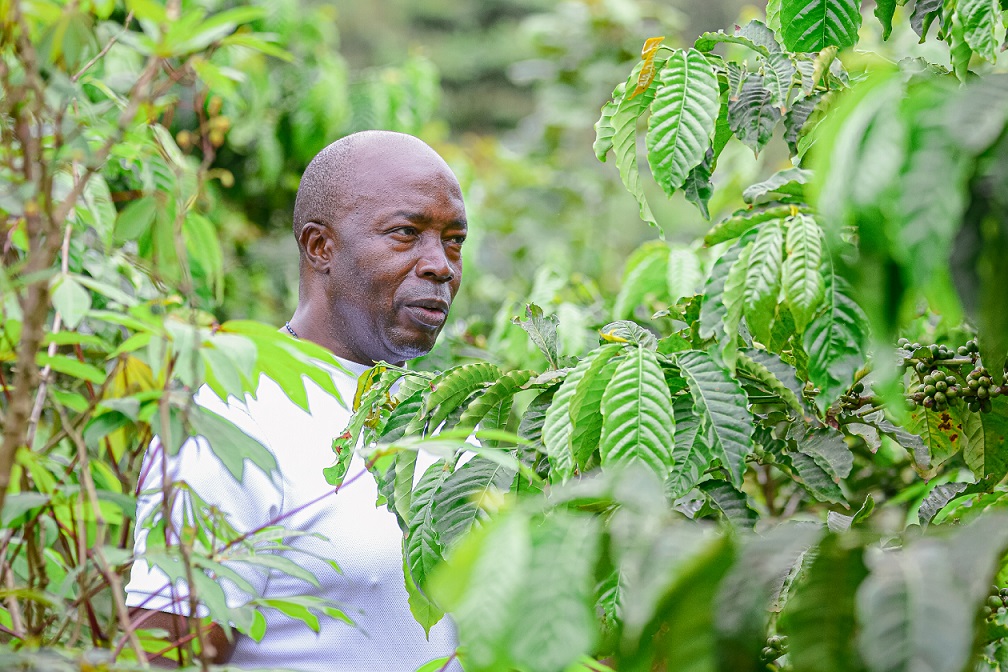
 Everything You Need to Know About Diageo’s Sale of its 65% Stake in EABL to Japan’s Asahi Group
Everything You Need to Know About Diageo’s Sale of its 65% Stake in EABL to Japan’s Asahi Group
